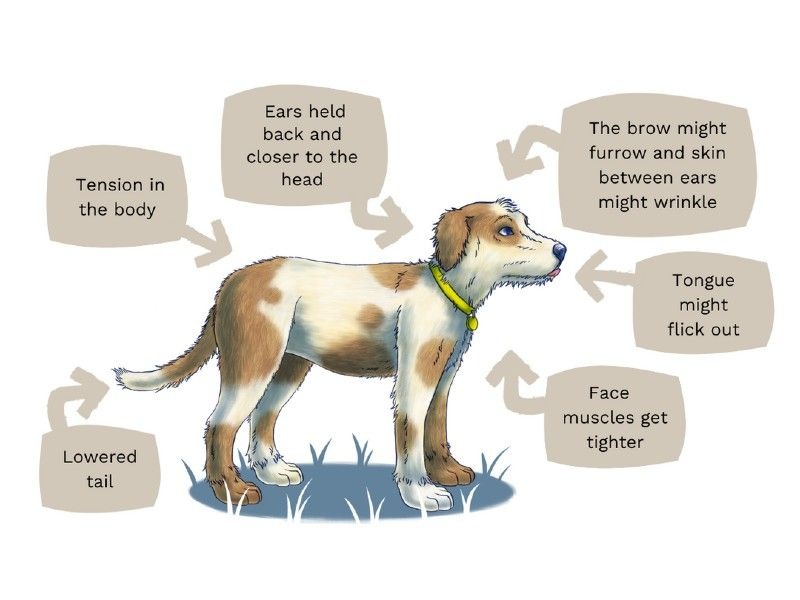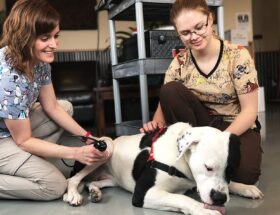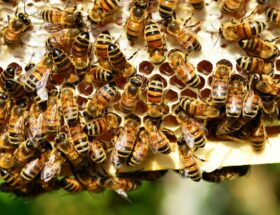
Research: The Top Types Of Anxiety In Dogs
Anxiety can seriously damage the health and well-being of dogs, making them stressed, miserable, and more vulnerable to health issues. The resulting ” bad ” behavior can harm a romantic relationship and can end in transfer to a shelter or Euthanasia.
The 7 main types of anxiety in dogs
A study of 13,700 pets in Finland identified the most common causes of their anxiety.
- Noise sensitivity (32%)
- Anxiety
- Fear of surfaces and heights
- Inattention / Impulsivity
- Constraint
- Separation-related behavior
- Aggression

“Due to the high prevalence of noise sensitivity and anxiety, they were the most frequent comorbidities,” says the research report on the prevalence, comorbidity, and racial differences in 13,700 Finnish animals. “However, when comparing relative risk, the largest risk indicators were seen between hyperactivity/inattention, separation-related behavior, and coercion, and between fear and aggression.
What is Comorbidity?
“In medicine, comorbidity is the presence of one or more additional conditions that often occur with a primary condition,” Wikipedia explains. “Comorbidity describes the effect of all other states that a single Patient might have, with the exception of the primary state Of interest, and may be physiological or psychological. In the context of mental health, comorbidity often refers to disorders that often coexist, such as get-down and anxiety disorders.”
Natural remedies for anxiety in dogs and cats
Anxious dog pet parents have a full range of natural products at their disposal that you can try. It will probably take a little trial and error to determine which one is best for your dog.

You will need a professional diagnosis before deciding on a natural treatment plan. It is important to work closely with your veterinarian to ensure that you do not aggravate existing health issue and avoid medicine interactions.
Your veterinarian will also eliminate or diagnose body problems that can cause (or contribute to) anxiety, such as adrenal gland problems, vitamin deficiencies, parasites, chemical imbalances in the brain, and health issue such as cancer or diabetes.
Natural” remedies ” for anxiety in dogs can include:
Dietary Changes
- Herbs and their extracts, often found in combined solutions like Stress Gold for dogs.
- Essential oils and aromatherapy
- Floral essences
- CBD oil
- Homeopathic Remedies
- Anti-anxiety products, such as Thundershirt.
- Positive Training
- Exercise
Learn more about these natural alternatives in our article, 7 natural remedies for anxiety, nervousness or anxiety in dogs and cats.
Genetic Prevention
Anxiety-related characteristics varied between dog breeds, suggesting that the answer may be preventive breeding by selection. Responsible breeders already apply selective breeding practices to reduce undesirable characteristics such as health issue or aggression. Modified breeding practices focused on eliminating anxious behaviors could significantly reduce the prevalence of anxiety in dogs.
“Anxious animals can suffer from chronic Stress and, therefore, modified breeding guidelines could improve the well-being of our pet dogs,” the study concludes.

Main sources:
Dreschel, N. A. The effects of anxiety and anxiety on the health and lifespan of pets. Appl. Anim. Behave. Sci. 125, 157–162 (2010).
Salonen, M., Sulkama, S., Mikkola, S. et al. Prevalence, comorbidity and racial differences in canine anxiety in 13,700 Finnish dogs. Sci Rep 10, 2962 (2020).







